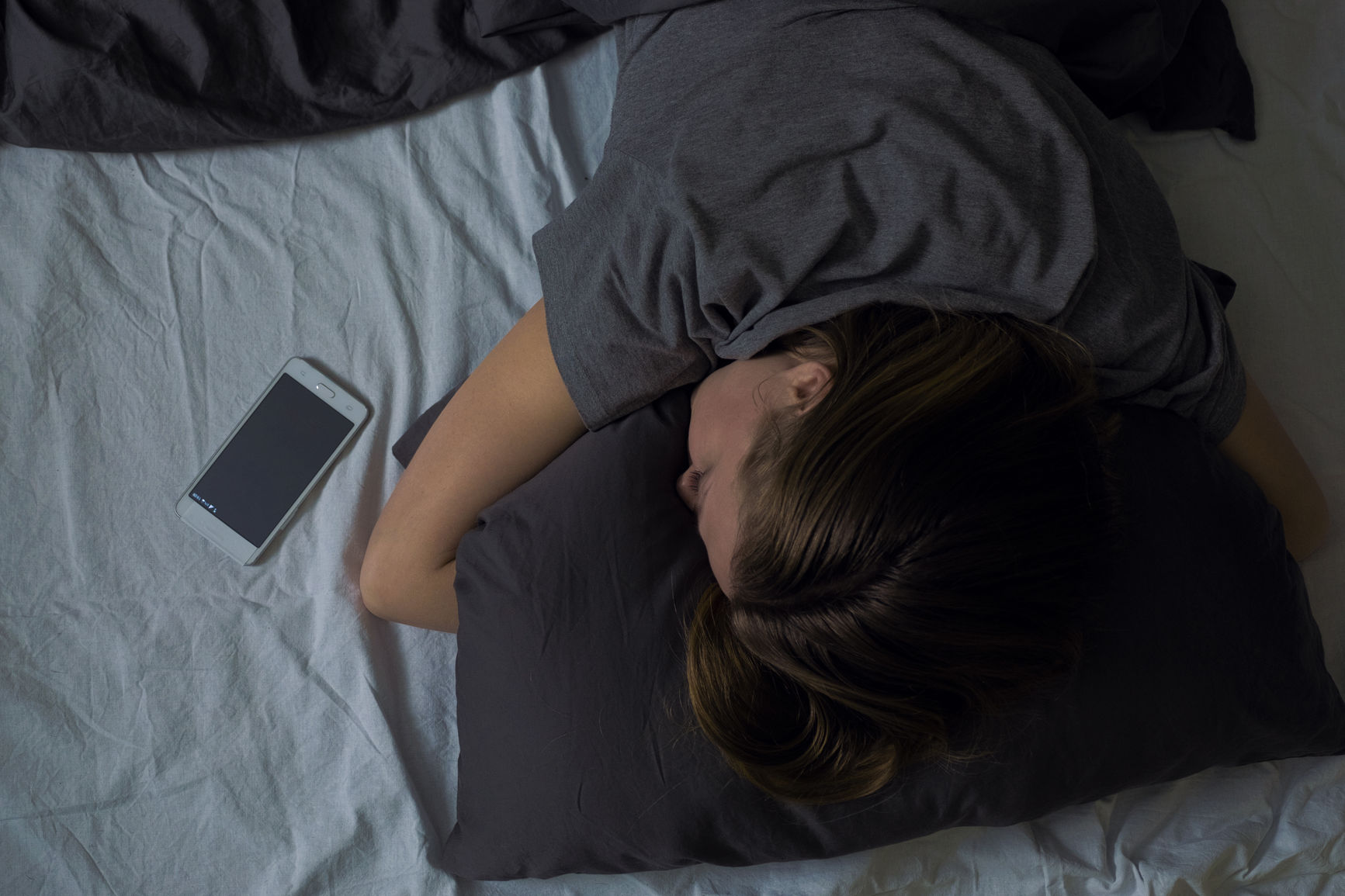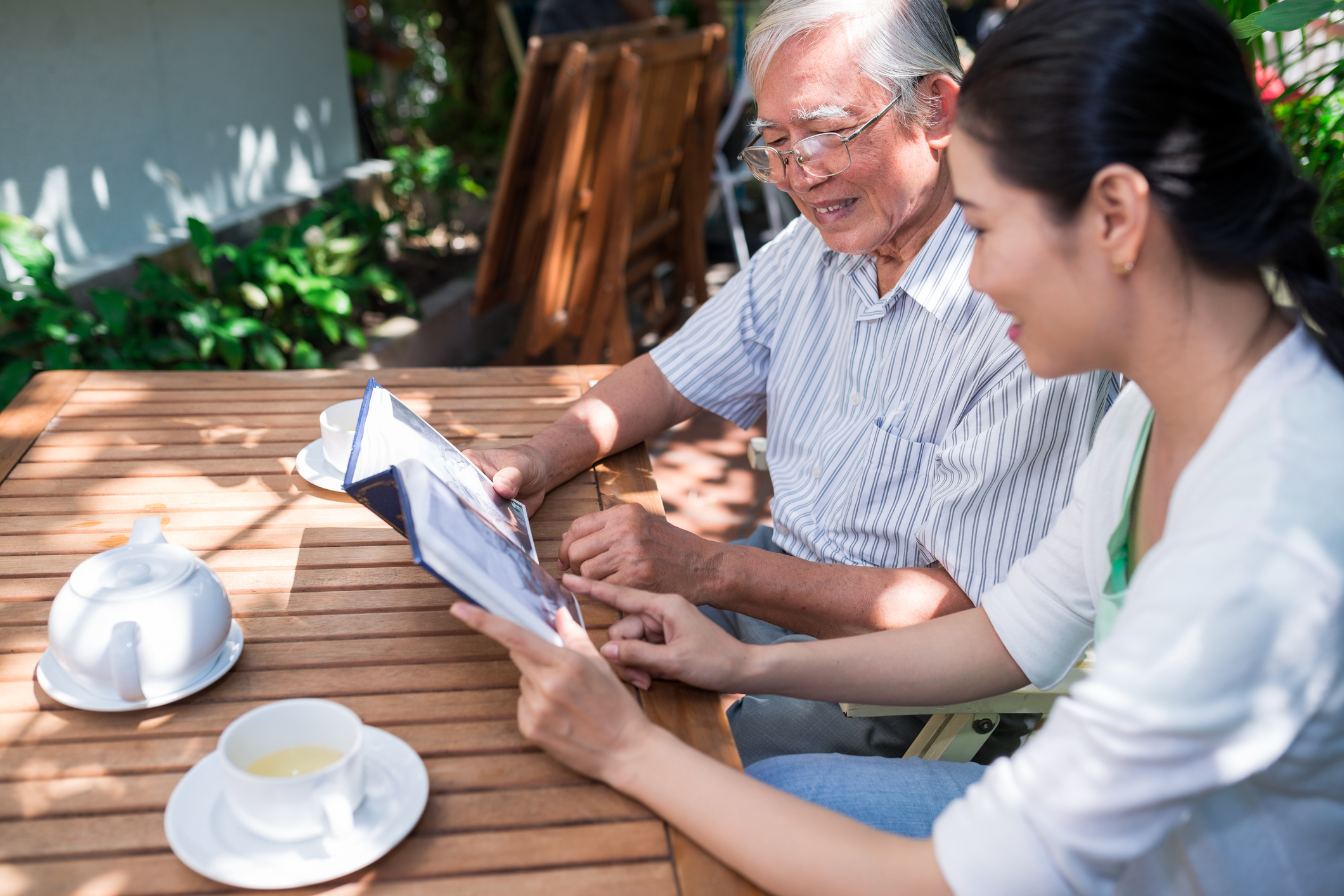-
There’s nothing quite like a good night’s sleep to have you bouncing out of bed and ready for whatever the day throws at you. On the flip side, not getting enough quality sleep can leave you feeling — and behaving — like the proverbial bear with a sore head.
We spoke to CQU researcher and Sleep Health Foundation spokesperson Dr. Amy Reynolds to get the facts straight on how those “urgent” work emails or late-night LOLs could be costing you quality snooze time.
Screen time and sleep problems
While technology has made it easy to do almost anything we want at the touch of a screen, it can make it difficult to disconnect, even at bedtime. And research into the effects of device use on sleep continues to suggest that technology and sleep simply don’t make good bed buddies.
Dr Reynolds says, “One of the hormones that’s really important in helping us get off to sleep is a hormone called melatonin. Melatonin relies on light to tell the body the body whether it needs to be sleeping or awake, so if light levels are bright then it’s suppressing melatonin. The light stops those levels from rising and stops us from getting off to sleep.”
A three-year study by Griffith and Murdoch Universities looked at late-night mobile phone use, sleep, and mental health indicators in Australian teenagers1. That study found that late-night mobile phone use directly contributed to poor sleep habits, leading to longer term declines in overall wellbeing and mental health.
Studies into screen use in both adolescents and adults is consistently showing a negative link between phone use and sleep quality2, 3. One study specifically looked at social media use on mobile devices at bedtime — it recommends against getting your social fix from bed, warning that it’s more likely to cause insomnia, anxiety, and reduced sleep4.
Listen now: As a small business owner Neel struggles to balance work, sleep and his health. Our experts weigh in.
How your phone habits affect your sleep

-
Why is sleep so important?
There are a host of reasons why getting a good night’s sleep is invaluable to your health, and Dr. Reynolds advises it goes beyond feeling a little grumpy in the morning. “If you’re studying, we know your ability to retain information is really affected by your sleep… it affects your weight management, when you don’t get enough sleep we often see weight gain. [It affects] the hormones associated with staying healthy, things like glucose and insulin. It affects our mood and the way we interact with the people around us. It kind of covers all bases unfortunately — or I should say fortunately because at least you can do something about it.”
Additionally, if you rely on your car to get around, there’s another big reason to pay attention to the quality of your shut-eye. “If you look at it purely from a safety point of view as well, if you’re not getting enough sleep and you’re tired and you are driving on the road you are at a higher risk of a car accident. There’s safety implications not just for your health but also for your immediate safety on the road. If you’re awake for more than 24 hours, say you pull an all-nighter, it’s the same as driving with a blood alcohol content greater than .05.”
READ MORE: 6 ways to to improve your slumber
Tips to stop using your phone before bed
If your phone is getting in the way of a good night’s sleep, or you’d just like to enjoy disconnecting at night, here are Dr. Reynolds’ top tips to get you started.
Cut off and switch off.
Decide on a cut-off time for phone use before bed and (how’s the irony) use your phone’s alarm function to signal when it’s time to switch off, ideally an hour or two before bed. “We need to give our bodies about an hour to wind down in the evening so whether that’s reading a book, whether that’s doing something less stimulating than chatting to your friends on social media, putting everything away that hour before you want to be asleep can be a really good way to start focusing on improving your sleep.”
Remove temptation.
Dr. Reynolds says this is a big one to cutting down on screen time before sleep: take your phone out of your bedroom. “As part of a CQ University study funded by SafeWork, we had a chat to some young people a few years ago on what they think the barriers are and facilitators are for getting a good sleep. From what we spoke to them about, the big thing is keeping your phone out of your room, and not using the excuse of needing it as an alarm clock. You know, it doesn’t matter which way you cut it, if something’s disturbing your sleep you’re not getting the rest that you need.”
Make sleep a priority.
This one may be tough to accept, but Dr. Reynolds says there’s no quick fixes when it comes to sleep. “There’s no silver bullet or magic app that’s going to make sleep better without investing time and effort in your sleep. We have to make it a priority.”
READ MORE: How to set your bedroom up for better sleep
It’s understandable why so many of us are having trouble switching off at night: “Things are happening 24 hours a day, 7 days a week, our society never really switches off. We can connect to people who are just waking up on the other side of the world, we live on different sides of the world, we have friends that are working night shift, there’s always something going on and we don’t want to miss out.
“At some point though, we have to realise that not missing out now might be really negatively affecting our health in the future, which will mean we miss out on other stuff,” concludes Amy.
If your phone feels like it’s attached to your hand at times, it can be challenging to break your routine and form new habits. But never underestimate the value of quality sleep, and the simple things you can do to help make sure you’re getting what you need.
1. Vernon et al., 2018, Mobile Phones in the Bedroom: Trajectories of Sleep Habits and Subsequent Adolescent Psychosocial Development, Child Development, https://www.ncbi.nlm.nih.gov/pubmed/28556891
2. Hysing et al, 2012, Sleep and use of electronic devices, British Medical Journal https://bmjopen.bmj.com/content/5/1/e006748
3. Christensen et al, 2016, Direct Measurements of Smartphone Screen-Time: Relationships with Demographics and Sleep. PloS One https://www.ncbi.nlm.nih.gov/pmc/articles/PMC5102460/
4. Bhat et al, 2017, “To sleep, perchance to tweet”: in-bed electronic social media use and its associations with insomnia, daytime sleepiness, mood, and sleep duration in adults, Sleep Health https://www.sleephealthjournal.org/article/S2352-7218(17)30237-1/fulltext
-
Innovating for members living with chronic disease
Medibank is supporting our members living with chronic diseases such as heart disease, arthritis, and diabetes, through our CareComplete programs.
-
The origins of western and eastern medicine
Two schools of thought explained
-
This is why you get the runs after drinking
Hangover diarrhoea explained
-
What causes dementia?
Dementia is not an inevitable part of ageing
-
A glimmer of hope in our worsening obesity crisis
Young Australians lead the positive shift
-
How to maintain strong and healthy bones
6 simple tips to reduce your risk of osteoporosis
Subscribe to receive the best from Live Better every week. Healthy recipes, exercise tips and activities, offers and promotions – everything to help you eat, move and feel better.
By clicking sign up I understand and agree to Medibank's privacy policy






